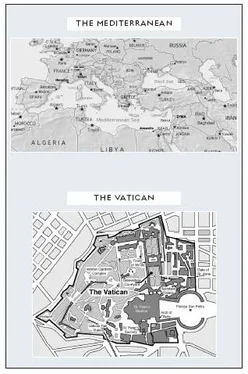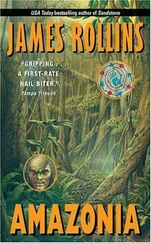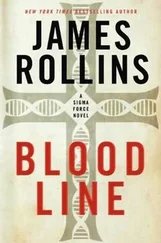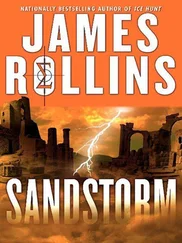“I have lunch almost ready.”
“What? You’re cooking?” He swung open the screen door with a pained cry of its spring hinges. It snapped closed behind him. “Will wonders never cease?”
“Don’t give me any of your lip, young man. I’m fully capable of making sandwiches. Ham and cheese.”
He crossed through the living room with its oak Craftsman furniture, a tasteful mix of modern and antique. He did not fail to note the fine coating of dust. His mother had never been much of a homemaker, spending most of her time teaching, first at a Jesuit high school back in Texas and now as an associate dean of biological sciences at George Washington University. His parents had moved out here three years ago, into the quiet historical district of Takoma Park, with its quaint Victorian homes and older shingle cottages. Gray had an apartment a couple of miles away, on Piney Branch Road. He had wanted to be close to his parents, to help out where he could.
Especially now.
“Where’s Dad?” he asked as he entered the kitchen, seeing his father was not present.
His mother closed the refrigerator door, a gallon of milk in hand. “Out in the garage. Working on another birdhouse.”
“Not another one?”
She frowned at him. “He likes it. Keeps him out of trouble. His therapist says it’s good for him to have a hobby.” She crossed with two plates of sandwiches.
His mother had come straight from her university office. She still wore her blue blazer over a white blouse, her blond-gray hair pulled back and bobby-pinned. Neat, professorial. But Gray noted the haggard edge to her eyes. She looked more drawn, thinner.
Gray took the plates. “Dad’s woodworking may help him, but does it always have to be birdhouses? There are only so many birds in Maryland.”
She smiled. “Eat your sandwiches. Do you want any pickles?”
“No.” It was the way they always were. Small talk to avoid the larger matters. But some things couldn’t be put off forever. “Where did they find him?”
“Over by the 7-Eleven on Cedar. He got confused. Ended up heading the wrong way. He had enough presence of mind to call John and Suz.”
The neighbors must have then telephoned Gray’s mother, and she in turn had called Gray, worried, half-panicked. But five minutes later, she had called again. His father was home and fine. Still, Gray knew he had better stop by for a short visit.
“Is he still taking his Aricept?” he asked.
“Of course. I make sure he does every morning.”
His father had been diagnosed with Alzheimer’s, the very early stages, shortly after his parents had moved out here. It had started with small bouts of forgetfulness: where he had placed his keys, telephone numbers, the names of neighbors. The doctors said the move from Texas might have brought forth symptoms that had been latent. His mind had a difficult time cataloging all the new information after the cross-country move. But stubborn and determined, he had refused to go back. Eventually along with the forgetfulness came spats of frustrated anger. Not that such a line was ever hard for his father to cross.
“Why don’t you take his plate out to him?” his mother asked. “I have to call in to the office.”
Gray reached and took the sandwiches, letting his hand rest atop hers for a moment. “Maybe we need to talk about that live-in nurse.”
She shook her head — not denying the need so much as simply refusing to discuss it. She pulled her hand from his. Gray had hit this wall before. His father would not allow it, and his mother felt it was her responsibility to care for him. But it was wearing on the household, on his mother, on their entire family.
“When was the last time Kenny came by?” he asked. His younger brother ran a computer start-up just across the border in Virginia, following in his father’s footsteps as an engineer — electrical, though, not petroleum.
“You know Kenny…” his mother said. “Let me get you a pickle for your father.”
Gray shook his head. Lately Kenny had been talking of moving to Cupertino, California. He had excuses for why the move was necessary, but beneath it all, Gray knew the truth. His brother merely wanted to escape, to get away. At least Gray understood that sentiment. He had done that himself, joining the Army. It must be a Pierce family trait.
His mother passed him the pickle jar to open. “How is everything at the lab?”
“Going fine,” he said. He cracked the lid, fished out a dill, and placed it on the plate.
“I was reading about a bunch of budget cuts over at DARPA.”
“My job’s not at risk,” he assured her. Neither of his folks knew of his role with Sigma. They thought he simply did low-level research for the military. They did not have the security clearance for the truth.
With the plate in hand, Gray headed for the back door.
His mother watched him. “He’ll be glad to see you.”
If only I could say the same….
Gray headed for the garage out back. He heard the twangs of a country music station flowing from the open door. It brought back memories of line dancing at Muleshoes. And other less pleasant recollections.
He stood at the entrance of the garage. His father crouched over a vise-gripped piece of wood, hand-planing an edge.
“Pop,” he said.
His dad straightened and turned. He was as tall as Grayson, but built stocky, wider shoulders, broader back. He had worked the oil fields while putting himself through college, earning a good practical degree in petroleum engineering. He had done well until an industrial accident at a well sheared away his left leg at the knee. The settlement and disability allowed him to retire at forty-seven.
That had been fifteen years ago.
Half of Grayson’s life. The bad half.
His father turned toward him. “Gray?” He wiped the sweat from his brow, smearing sawdust. A scowl formed. “There was no need to come all the way out here.”
“How else would these sandwiches get to you?” He lifted the plate.
“Your mother made those?”
“You know Mom. She tried her best.”
“Then I’d better eat them. Can’t discourage the habit.”
He pushed away from the workbench and hobbled stiff-legged on his prosthesis to a small fridge in the back. “Beer?”
“I have to go back to work in a bit.”
“One beer won’t kill you. I’ve some of that Sam Adams swill you like.”
His father was more of a Budweiser-and-Coors man. But the fact that he stocked his fridge with Sam Adams was about the equivalent of a pat on the back. Maybe even a hug.
He couldn’t refuse.
Gray took the bottle and used the opener built into the edge of the worktable to pop it open. His father sidled over and leaned a hip on a stool. He lifted his own bottle, a Budweiser, in salute. “It sucks to get old…but there’s always beer.”
“So true.” Gray drank deeply. He wasn’t sure he should be mixing codeine and alcohol — then again, it had been a long, long morning.
His father stared at him. The silence threatened to become quickly awkward.
“So,” Gray said, “can’t find your way home any longer.”
“Fuck you,” he responded with false anger, weakened by a grin and a shake of his head. His father appreciated honest talk. Straight shooting, as he used to say. “At least I was no goddamn felon.”
“You can’t let go of my stint in Leavenworth. That you keep remembering!”
His father tipped his beer bottle at Gray. “I will as long as I damn can.”
Their eyes met. He saw something glint behind his father’s banter, something he had seldom seen before. Fear.
The two had never had an easy relationship. His father had taken to heavy drinking after the accident, accompanied by severe bouts of depression. It was hard for a Texas oilman to suddenly become a housewife, raising two boys while his spouse went to work. To compensate, he had run the household like a boot camp. And Gray had always pushed the envelope, a born rebel.
Читать дальше










